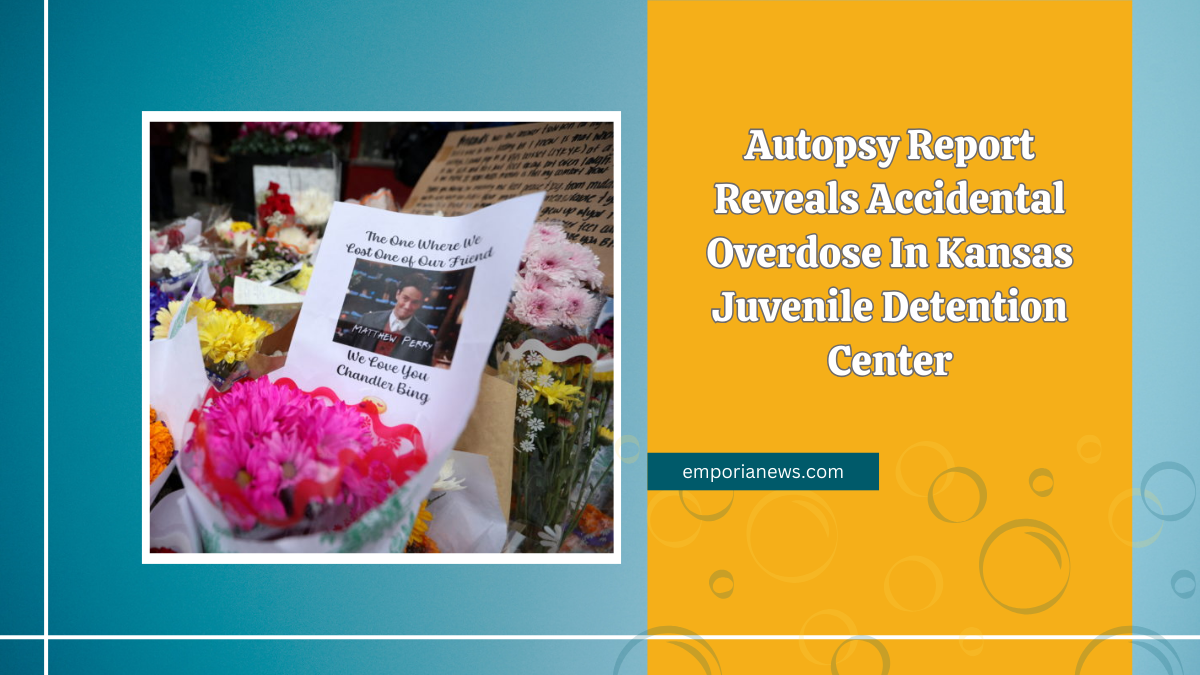In a recent development, the Kansas Bureau of Investigation (KBI) has released the autopsy findings concerning the death of a 17-year-old male inmate at the North Central Kansas Regional Juvenile Detention Center in Junction City.
The teenager, hailing from Dodge City, was found unresponsive on November 5, 2024, and was later pronounced dead at a local hospital.
Cause of Death: Accidental Intoxication
The autopsy report indicates that the cause of death was accidental intoxication resulting from a combination of prescribed medications.
The substances identified include buprenorphine, norbuprenorphine, hydroxyzine, quetiapine, and trazodone. These medications are commonly prescribed for conditions such as pain management, anxiety, and depression.
Contributing Health Factors
In addition to the drug intoxication, the autopsy highlighted several underlying health conditions that contributed to the teenager’s death:
- Cardiomegaly: An abnormal enlargement of the heart, which can increase the risk of cardiac complications.
- Obesity: Excess body weight, a known factor that can exacerbate various health issues, including heart disease.
- Asthma: A chronic respiratory condition that can complicate the body’s response to sedative medications.
Timeline of Events
- November 5, 2024, 6:50 a.m.: Detention center staff discovered the teen unresponsive in his cell.
- Immediate Response: Emergency Medical Services (EMS) were summoned promptly. Upon arrival, EMS personnel initiated resuscitation efforts.
- Approximately 7:40 a.m.: The teenager was transported to a nearby hospital, where medical staff pronounced him deceased.
KBI’s Role and Legal Mandate
Under Kansas state law, the KBI is obligated to investigate all deaths occurring within the custody of state correctional facilities, including juvenile detention centers.
This mandate ensures that any fatalities are thoroughly examined to rule out foul play and to identify systemic issues that may need addressing.
Implications and Concerns
The tragic incident raises several concerns regarding the management of prescribed medications within juvenile detention facilities:
- Medication Administration: Ensuring that inmates receive and consume medications strictly as prescribed to prevent misuse or accidental overdose.
- Monitoring and Supervision: Implementing robust monitoring systems to observe inmates, especially those with known health conditions or those prescribed potent medications.
- Health Assessments: Conducting comprehensive health evaluations upon intake to identify pre-existing conditions that may increase the risk of adverse reactions to certain medications.
Preventative Measures
In light of this incident, detention facilities are encouraged to review and enhance their healthcare protocols:
- Staff Training: Educating staff on the potential risks associated with various medications and the importance of adhering to prescribed dosages.
- Regular Health Check-ups: Scheduling frequent medical assessments for inmates to monitor their health status and adjust medications as necessary.
- Emergency Preparedness: Ensuring that all staff are trained in emergency response procedures, including the administration of life-saving measures in cases of overdose.
| Medication | Common Use |
|---|---|
| Buprenorphine | Pain management |
| Norbuprenorphine | Metabolite of buprenorphine |
| Hydroxyzine | Anxiety and allergy relief |
| Quetiapine | Antipsychotic for mood disorders |
| Trazodone | Antidepressant and sleep aid |
The untimely death of the 17-year-old at the North Central Kansas Regional Juvenile Detention Center underscores the critical need for stringent healthcare protocols within correctional facilities.
By addressing medication management, enhancing monitoring systems, and prioritizing inmate health, such tragic incidents can be mitigated in the future.
FAQs
What was the primary cause of the teenager’s death?
The primary cause was accidental intoxication from a combination of prescribed medications.
Were there any underlying health conditions?
Yes, contributing factors included cardiomegaly, obesity, and asthma.
What is the KBI’s role in such incidents?
The KBI investigates all deaths in Kansas correctional facilities to ensure thorough examination and transparency.




